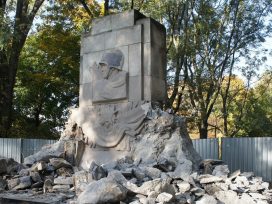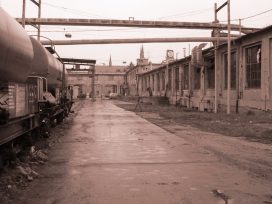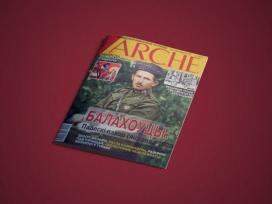On the 70th anniversary of Stalin’s death, a special issue of Internazionale looks at the life and significance of the Soviet dictator through the eyes of the international press of his time. This is no mere exercise in historical memory, writes editor Andrea Pipino: Stalin’s legacy ‘has survived. And it is still very much present today in that hybrid of Soviet and tsarist nostalgia, orthodox messianism and imperial ambitions that is Putin’s Russia.’
The scale of Stalin’s personality cult contrasted starkly with the infrequency of his public appearances. ‘Power, when it comes from a mysterious source, tends to terrorize’, wrote H.R. Knickerbocker in the New York Evening Post:‘And the mystery surrounding the person of Stalin is one of the reasons why his name, in Russia, is synonymous with unlimited power.’
Knickerbocker attempted to lift the veil of secrecy by interviewing Stalin’s mother in 1930. Visiting her in one of the two simple rooms she occupied in the former viceroy’s palace of Tiflis (now Tbilisi), Ekaterina Geladze spoke little Russian but was eager to talk about her son, ‘Soso’, and her dream of him becoming a priest. Health reasons, and not covert Marxist activities, had led to his removal from the seminary, she said.
But Geladze knew little about her son the political leader, whom she visited only once in Moscow: ‘Even to his own mother, Stalin, in a way, remains a mystery,’ Knickerbocker concluded.
Famine
The Welsh journalist Gareth Jones was the first journalist in the West to uncover the Soviet famine of 1932–33. While industrialization proceeded rapidly in the cities, in the countryside ‘there was one cry which resounded everywhere I went, and that was “There is no bread”’, he wrote in The London Evening Standard.
Although Muscovites seemed to have no inkling of what was going on in the rest of the USSR, Jones understood that the famine was much worse than the previous one in 1921. Facing food shortages, the peasants had to sacrifice their livestock, he wrote: ‘Without a horse how can one plough? And if one cannot plough, how can one sow for the next harvest? And if one cannot sow for the next harvest, then death is the only prospect in the future.’
‘Today the famine is everywhere, in the formerly rich Ukraine, in West Russia, in Central Asia, in North Caucasia – everywhere … The Five Year Plan has built many fine factories. But it is bread that makes factory wheels go round, and the Five Year Plan has destroyed the bread-supplier of Russia.’
Anti-racism
‘The black American rejects any call to fight alongside white Europe against black Africa and protests against the continuing war with Asia. And he mourns that great man who was Stalin, who fought for peace and against racial discrimination, and who today lies dead in Moscow.’
With these words, the African-American sociologist, poet and activist W.E.B. Du Bois paid homage in the Pravda to the Soviet leader, who had fought for peace, he claimed, more than his white western counterparts. The Soviet Union was, moreover, ‘the only modern state to declare racial discrimination illegal’.
Over the past two hundred years, Du Bois wrote, war for black Americans ‘has meant fighting for a nation that did not recognise them as citizens’, from the struggle against British rule to the Korean War (Koreans ‘suffered from white nations the same kind of discrimination and contempt that black people suffer’) and uprisings in Africa.
De-Stalinization
Writing in Le Figaro after Khrushchev’s denunciation of his predecessor in 1956, Raymond Aron explained why there could be no Stalinism without Stalin: ‘State orthodoxy, as it had crystallised in the Soviet Union, demanded that one personality, just one, was capable of telling the truth, choosing traitors and heroes at will, and autonomously interpreting the meaning of events.’
It remained to be seen whether disowning the former leader meant changing the nature of the regime or maintaining the dogma of the party’s infallibility. Aron struck a note of moderate optimism: ‘No regime, no country has a monopoly on horror. But if the Soviet Union stops describing concentration camps as humanitarian institutions, it means that the world has changed its face. The end of the big lie could be the beginning of hope’.
Legacy
In an afterword, historian Ferenc Laczó explores the influence of Stalinism today. It is most evident, he writes, in ‘the militant paranoia of Russia’ and ‘the hypermodern and violently repressive world of the party-state ruling China’. The ghost of the Soviet dictator is also evoked by those who ‘prefer to ignore the inequalities of contemporary capitalism in order to continue fighting the ideological battles of the past’.
‘The lasting impact of Stalinism,’ concludes Laczó, ‘is clearly observable in the divergence between the political cultures of eastern and western Europe, characterized by a clear distinction between a more detached approach based on reasonable compromise and one in which politics appears as the theatre of existential battles.’






